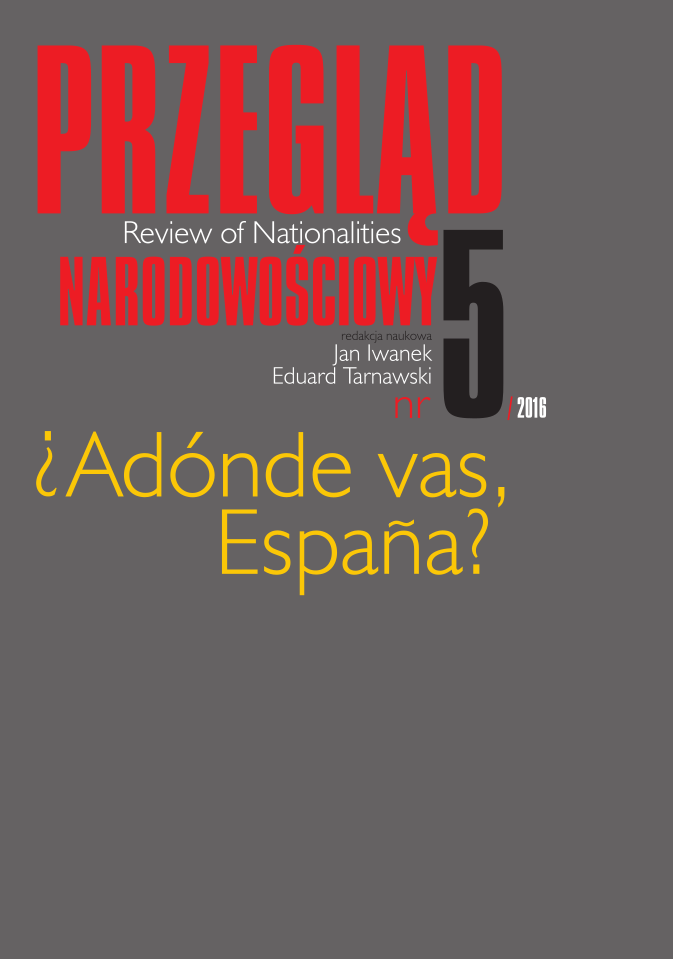Abstract
In this article, the analysis and an attempt to systematize the contemporary Spanish politics of memory. The axis of the current debates about the past are in Spain two events: the Spanish Civil War (1936-1939) and Franco’s dictatorship (1936-1975). The starting point for discussion is the thesis of the distributed nature of initiatives seeking to dominate the politics of memory. National memory is only a useful politically metaphor, while in terms of liberal democracy one should rather speak in the plural of historical memories and historical policies. Politics of memory is in fact creating both top-down by the political parties through political institutions, as well as bottom-up initiatives by the civil society.
The second important objective is to negate the dominant media discourse claims that allegedly in Spain there was widespread pact of silence about the time of the Civil War and Francoism and until the reform of the ruling in the years 2004-2012 broke it, causing social change. The covenant of silence was the agreement between the party leaders to allow a peaceful transition to democracy. This does not mean, however, that at lower levels of government as well as in other fields of public discourse did not make any settlement with the past.
In the first part of the article I make explanations of individual concepts and explain the analysis model that I use. In the second part I describe contemporary Spanish politics of memory through an analysis of the main tools, which are in the hands of politicians (political discourse, regulation, public policy) and civil society (initiative of non-governmental organizations, the arts, science, media).

